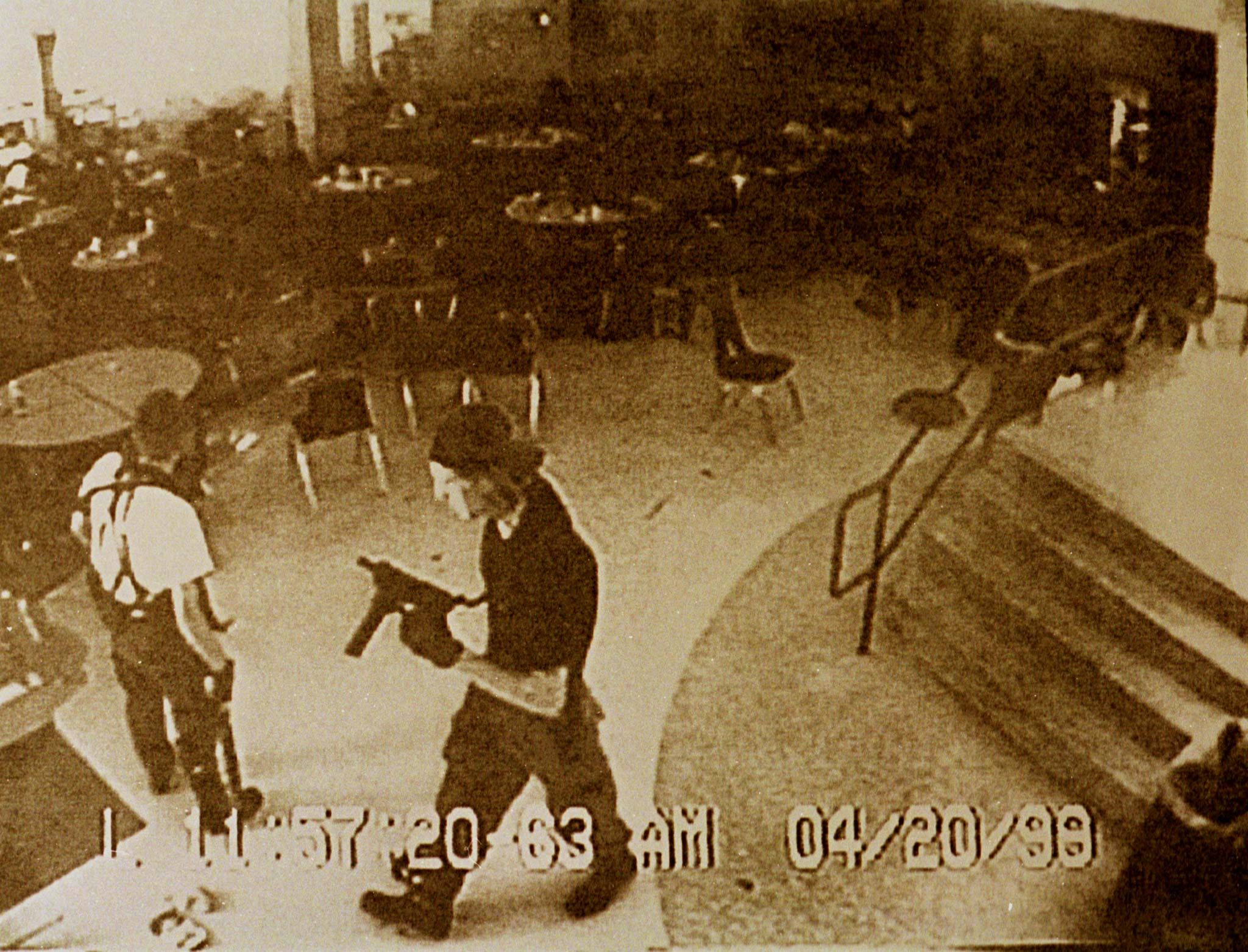
The mother of one of the Columbine shooters has signed a book deal to write a memoir, 15 years after Dylan Klebold and Eric Harris opened fire at the Colorado high school, killing 13 and wounding 24 in one of the deadliest mass shootings in U.S. history.
Susan Klebold plans to confront the "indescribable grief and shame" she has experienced since the shootings, The Associated Press reports. Crown Publishing acquired the book, whose title and publication date are yet to be determined.
Shooting rampages at Connecticut's Sandy Hook Elementary School, the University of California, Santa Barbara, Seattle Pacific University and other places prompted Klebold to share her story, according to a press release Crown Publishing put out Tuesday.
"Klebold has shielded herself from nothing, exhaustively exploring the depths of her memories, interviewing family members and friends, combing through her journals, and meeting with countless mental health experts," says the release, to try "to understand how her child could have hurt so many—without her ever recognizing anything was wrong."
In 1999, Newsweek writer Sharon Begley grappled with the complex reasons the shootings took place. They were an "event of extreme national trauma" that still haunted the nation on the 15th anniversary earlier this year, Newsweek editor Rob Verger wrote.
Klebold has previously spoken publicly about her son's involvement in the shooting. "Dylan did not do this because of the way he was raised," she told New York Times columnist David Brooks in 2004. "He did it in contradiction to the way he was raised."
With her husband, Tom, she talked to Andrew Solomon for his 2012 book Far From the Tree, about parents who raise abnormal or exceptional children.
In an essay in O—The Oprah Magazine in 2009, Klebold addressed what it felt like to be accused of bearing some of the responsibility for the shootings.
"I was widely viewed as a perpetrator or at least an accomplice since I was the person who had raised a 'monster,'" Klebold wrote in O. "Our elected officials stated publicly that bad parenting was the cause of the massacre."
A Pew Research Center report in April 2000 found that shortly after the shootings occurred 85 percent of Americans said it was the parents' responsibility to prevent potential perpetrators from going on shooting rampages like the one at Columbine. Nine percent thought it was the school's responsibility.
Six out of 10 Americans surveyed the year of the study believed closer scrutiny of troubled children with "antisocial attitudes" would help prevent future shootings—a significantly higher number than those who thought school security, gun laws or violence in popular entertainment was responsible.
It can be unfair to assign responsibility for mass shootings to families, Peter Langman, a psychologist and the author of Why Kids Kill: Inside the Minds of School Shooters, tells Newsweek. "For families to be blamed...is really misplaced anger," Langman says. "People want to take out their rage on people who did not contribute in any way to the attack."
Based on his research, "there are three basic types of people who commit school shootings," Langman tells Newsweek. "Traumatized" shooters come from broken homes, where they suffered from physical and/or sexual abuse and had at least one parent with substance abuse problems and at least one parent with a criminal history, according to Langman's article "Rampage School Shooters: A Typology. But most of the families, like the Klebolds, he says, are "basically intact, stable middle-class families."
The day after Crown Publishing announced the memoir, a study released by the FBI on Wednesday showed that mass shootings have increased in frequency between 2000 and 2013. The study does not mention the shootings at Columbine High School.
One way Klebold has processed her son's actions and coped with the shootings has been to involve herself in efforts related to children's mental health and suicide prevention, according to Langman.
"I hope that someday everyone will recognize the warning signs of suicide," wrote Klebold in O, "as easily as we recognize the warning signs of cancer."
Klebold plans to donate the profits from her memoir to mental health research and charities, according to the press release from Crown Publishing.
"The fact that I never saw tragedy coming is still almost inconceivable to me. I only hope my story can help those who can still be helped," Klebold wrote in O. "I hope that, by reading of my experience, someone will see what I missed."
Uncommon Knowledge
Newsweek is committed to challenging conventional wisdom and finding connections in the search for common ground.
Newsweek is committed to challenging conventional wisdom and finding connections in the search for common ground.
About the writer
Stav is a general assignment staff writer for Newsweek. She received the Newswomen's Club of New York's 2016 Martha Coman Front ... Read more
To read how Newsweek uses AI as a newsroom tool, Click here.





